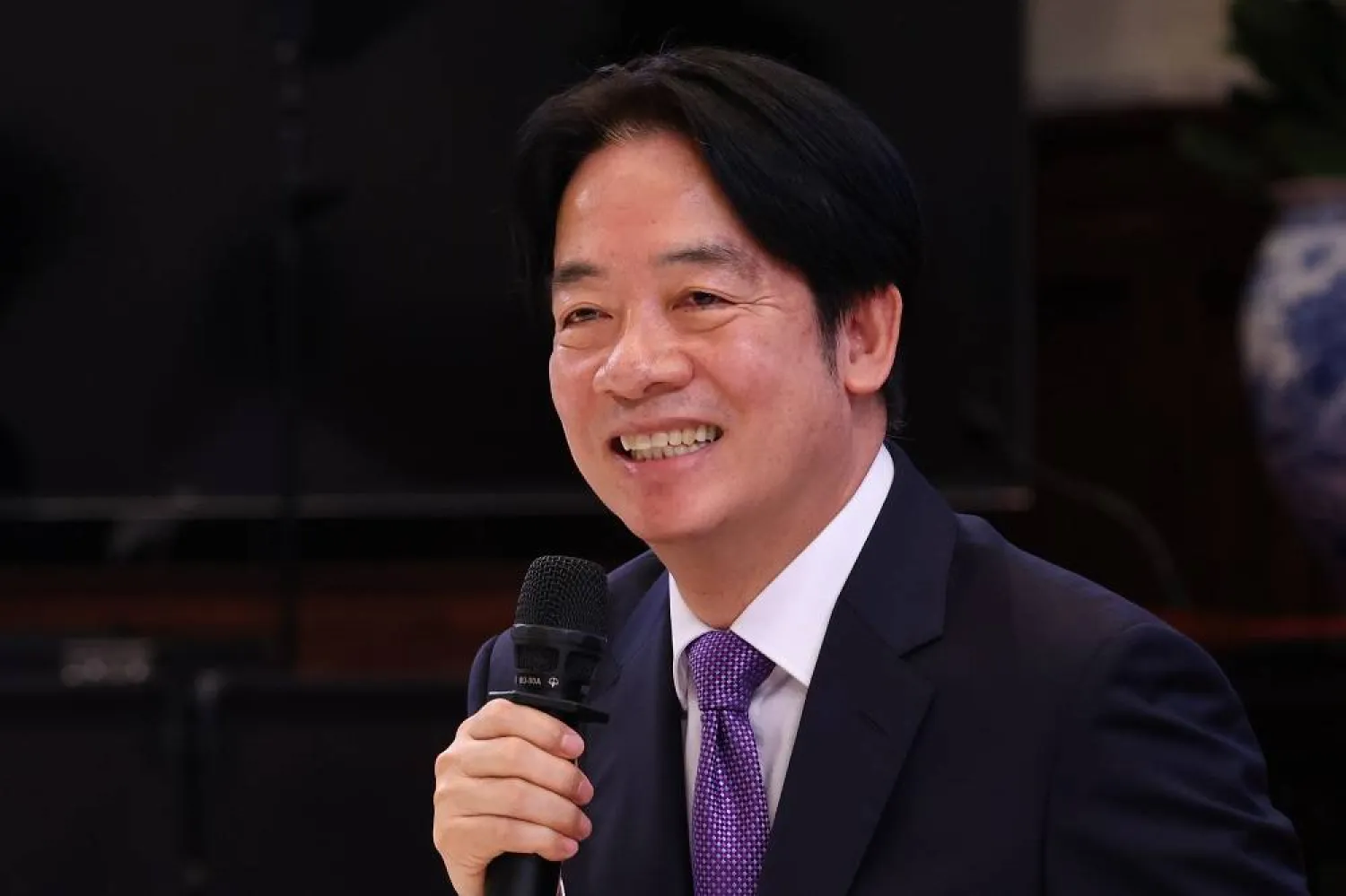Taiwanese President Lai Ching-te said Wednesday that China was attempting to force the self-ruled island into submission but that it would not bow to pressure.
China claims Taiwan as part of its territory and has said it will never renounce the use of force to bring it under Beijing's control.
In recent years, Beijing has upped military and political pressure on the Taipei government, with the latest show of force coming three days after Lai's inauguration, when China conducted war games around the island.
Speaking at a Wednesday press conference marking his first month in office, Lai said: "The annexation of Taiwan is a national policy of the People's Republic of China".
"In addition to military force, they have increasingly employed non-traditional methods of coercion to try to force Taiwan into submission," he said.
"However, Taiwan will not bow to the pressure. The people of Taiwan will resolutely defend national sovereignty and uphold the democratic and free constitutional way of life."
China had said the war games -- launched days after Lai's May 20 inauguration -- were "punishment" for his inaugural speech, which Beijing dubbed a "confession of Taiwan independence".
Encircling Taiwan with warships, fighter jets and coastguard vessels, China said the three-day drills -- dubbed Joint Sword-2024A -- were a test of its ability to seize control of the island.
After the exercises, Beijing vowed military pressure would continue "as long as 'Taiwan independence' provocations continue".
- US weapons sale -
Taiwan -- separated from China by a narrow 180-kilometer (110-mile) strait -- has its own government, military and currency.
As China has increased pressures around the island, Taiwan has sought to strengthen economic ties with friendly countries while ramping up military purchases from the United States, a key partner.
The United States switched diplomatic recognition from Taipei to Beijing in 1979 but it has remained Taiwan's biggest arms supplier, sparking repeated condemnations from China.
On Tuesday, the US Pentagon in Washington announced the approval of two arms sales to Taiwan: $300 million in unmanned aerial vehicles, and $60.2 million for equipment including more than 700 Switchblades -- a miniature, precision-guided missile.
Taiwan's defense ministry on Wednesday thanked Washington for the approval of the deals, which are expected to take effect in a month's time.
"In the face of the Chinese Communist Party's frequent military operations around Taiwan, the US side in this case agreed to sell arms items that... can respond quickly to enemy threats," the ministry said in a statement.
Earlier this month, Washington also approved the sale of equipment and parts for F-16 fighter jets worth approximately $300 million.
Lai on Wednesday thanked the United States for its support, reiterating the need to develop "resilience" in Taiwan's defense strategy.
"The people of Taiwan love peace and are kind to others, but peace must be backed by strength. Achieving peace through preparedness is the way to avoid conflict," he said.
The new president is regarded as a "dangerous separatist" by China and has hewed closely to the rhetoric of his predecessor Tsai Ing-wen, saying that there is no need for Taiwan to formally declare independence as it is "already independent".
Lai and Tsai's Democratic Progressive Party has long asserted Taiwanese sovereignty, and China has not conducted top-level communications with Taipei since 2016.
During his inaugural speech in May, Lai signaled an openness to resuming dialogue with Beijing, calling for both sides to develop exchanges.
China, however, has appeared to rebuff those overtures.
It continues to maintain a near-daily presence of naval vessels and warplanes around the island, so-called grey zone tactics that fall short of an outright act of war but serve to exhaust Taiwan's military.
In recent months, Chinese coast guard ships have also been spotted around Taiwan's outlying islands, at times briefly entering its restricted waters.









